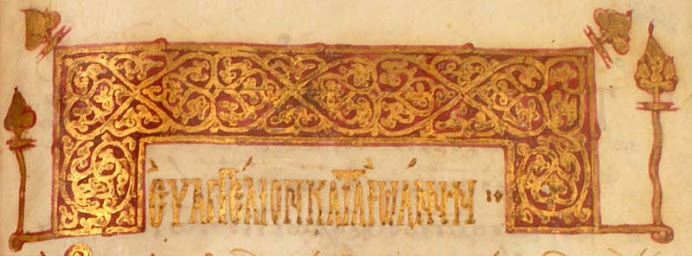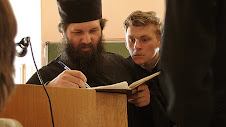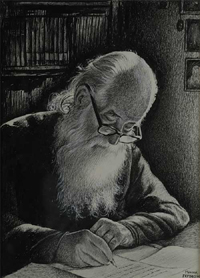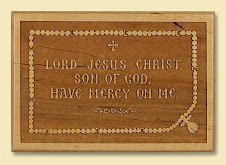 Archpriest David Moser of the St Seraphim Orthodox Church in Boise, ID, offered a very touching sermon on the late Metropolitan Laurus this past Sunday. Excerpt:
Archpriest David Moser of the St Seraphim Orthodox Church in Boise, ID, offered a very touching sermon on the late Metropolitan Laurus this past Sunday. Excerpt:Metropolitan Laurus embodied the qualities of a true and loving pastor, not just for his monks at Holy Trinity Monastery, where he was abbot; nor just for the Eastern American Diocese of which he was ruling hierarch; but for the whole Church Abroad, and even in many ways for those in the Russian homeland. Vladyka Metropolitan was a quiet man, not given to epistles and speeches and the writing of books, but a man who lived the Christian life and by living it showed us how to do so as well. Metropolitan Laurus will be remembered most as the man responsible for bringing to an end the rift between the Russian Church inside Russia and the Russian Church Outside Russia. This, however, is only the outer example of way that he led the Church in compassion and humility. First and foremost, the Metropolitan loved God so much so that from the age of 5 he lived and worked within the monastic brotherhood of St Job of Pochaev, first in Ladimirovo and finally in Holy Trinity Monastery in Jordanville, NY. He was a monk, that is one who has dedicated his whole life to Christ, forsaking even the world. Because of his burning love of our Lord Jesus Christ, Metropolitan Laurus grew in the spiritual graces and concurrently advanced in the grace of ordination. He lived through many stormy years in the life of the Church and yet he remained a strong and solid rock in the midst of that storm. He was able to do this because he had a deep and solid trust in God, and he also had a vision, a deep conviction of where God would lead His flock. Throughout his years as abbot of Holy Trinity Monastery, Vladyka Laurus worked to mitigate the extremes that had found their way into Church life. One always knew that Holy Trinity was a place were love and compassion ruled, not extremism and judgment. In this role he shaped generations of clergy who passed through the seminary there and who today fill the Church as pastors, some even as his fellow bishops. When Metropolitan Vitaly retired, Vladyka Laurus, although the senior of the bishops, sought to avoid being selected as First Hierarch, even suggesting that one of his juniors take that role, but that was not to be. All his life, Metropolitan Laurus had been prepared by God to be in that place at that time. Thus it was that he became First Hierarch of the Russian Church Outside Russia.
An insightful profile by Andrei Zolotov, Jr., has been making the rounds of the internet. I cite his concluding paragraph, largely because it is made up almost entirely of Vladyka's own words:
Working on this obituary, I spent a lot of time trying to find among Metropolitan Laurus’ published speeches some eloquent quote which describes the national, public and historical meaning of the Russian Church unification. And I did not find it. He spoke of unity in a different kind of language, which we are not used to. “We ought to save our souls in love toward each other and in unity,” he said less than a month ago, receiving from Moscow Mayor Yuri Luzhkov the Compatriot of the Year award. “And it takes colossal labor, patience, humility and indulgence. Let us actively strive for these virtues in order to develop and strengthen the unity and peace in the Church, which we achieved, with God’s help. So that the divisions which befell the Russian Orthodox Church and the peoples of our fatherland in the tragic 20th century would never repeat. Let everybody begin to care about the peace within, about the peace with one’s conscience – that is about personal peace and accord in life with God. Striving for this peace and achieving it, we will thus be striving for achieving peace and unity in the life of the society. Without this – no matter how much we’d try – divisions and enmities will continue. [The 6th century saint] Abba Dorotheus used to draw a circle. In the center of the circle is God. Around the circle are we, the people. How can we become closer? Everyone has to go from his place towards the center, to God. The closer we are to the center – to God – the closer we become toward each other. That is how I see the path toward a spiritual unity of the peoples of our fatherland. Going along this path, we will actively participate in the great cause of uniting all. Amen.”Read the full profile here.









No comments:
Post a Comment